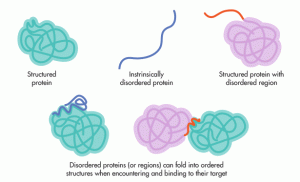Institute for Protein Innovation Launched
The Institute for Protein Innovation will work to pursue new therapies for currently intractable diseases by bringing together leaders with backgrounds in academic research, the biopharma industry, and biomedical investing.
The Institute plans to curate information related to DNA sequence, protein expression, and functional validation of these reagents, including source code, in a publicly-accessible web portal, with the goal of accelerating the development of new drugs and supporting existing large-scale research efforts, citing the Human Cell Atlas.
The Institute said it will recruit researchers focused on directed evolution, cell-line development, and biophysical protein characterization, in addition to glycoprotein expression and antibody discovery expertise.
“Despite their pivotal importance in research and medicine, proteins lag behind DNA and RNA in institutional research support and funding.”
–Timothy A. Springer, Ph.D., Founder and Latham Family Professor at Harvard Medical School and Boston Children’s Hospital
Read the full article at Genetic Engineering and Biotechnology News here.

New Article in GEN



Recent Comments